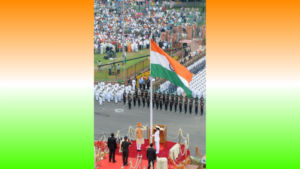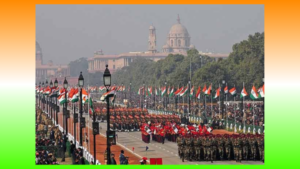Independence Day History: Exploring Its Origins from a Global Perspective
Independence Day is more than just a national holiday; it is a day of immense significance, symbolizing the triumph of justice, equality, and self-determination over colonial oppression. For many countries around the world, Independence Day marks the moment they broke free from the chains of imperialism, embarking on a new journey as sovereign nations. The celebration of Independence Day is deeply rooted in history, serving as a reminder of the struggles and sacrifices made by countless individuals to secure the freedom we enjoy today. This article delves into the brief history of Independence Day, exploring its origins, significance, and the ways it is celebrated across the globe.
Origins of Independence Day
The origins of Independence Day can be traced back to the rise of nationalism and the growing desire for self-rule among colonized nations. The late 18th and early 19th centuries witnessed a surge of revolutionary movements across Europe and the Americas, driven by the ideals of liberty, equality, and fraternity.
The American Revolution of 1776, where the thirteen colonies declared their independence from British rule, set the stage for other nations to follow suit. Thomas Jefferson’s Declaration of Independence, which inspired many other countries to pursue their own independence, became a potent emblem of the struggle for freedom.
In the years that followed, several nations across Latin America, Asia, and Africa began to challenge colonial rule, leading to a series of independence movements. Each country’s journey to independence was distinct and shaped by its unique historical, cultural, and political circumstances. However, the common thread that tied these movements together was the desire for self-determination and the rejection of foreign domination.
India’s Struggle for Independence
One of the most significant and well-documented struggles for independence was India’s fight against British colonial rule. The British East India Company first established its presence in India in the early 17th century as traders. Over time, the company expanded its influence, eventually taking control of vast territories and establishing British dominance over the Indian subcontinent.
By the 19th century, India had become a direct colony of the British Crown, leading to widespread exploitation, oppression, and resistance. The Indian National Congress (INC) was founded in 1885 as a platform for political dialogue and became the leading force in the fight for independence. The INC, under the leadership of figures like Mahatma Gandhi, Jawaharlal Nehru, and Sardar Vallabhbhai Patel, spearheaded the struggle for freedom through various movements and campaigns.
Mahatma Gandhi’s philosophy of non-violent resistance, or Satyagraha, played a pivotal role in India’s independence movement. Gandhi’s leadership in the Non-Cooperation Movement, the Civil Disobedience Movement, and the Quit India Movement galvanized millions of Indians to participate in the struggle for freedom. These movements emphasized the power of peaceful protest and civil disobedience as tools to challenge British authority.
The demand for independence grew stronger during World War II as Britain’s control over its colonies weakened. The efforts of freedom fighters, coupled with global geopolitical changes, made it increasingly difficult for the British to maintain their hold on India. After years of negotiations, protests, and resistance, the British government finally agreed to grant India independence.
On August 15, 1947, India was declared an independent nation, marking the end of over 200 years of British rule. The day is celebrated as Independence Day, a time to honor the sacrifices made by countless individuals in the fight for freedom. The partition of India and Pakistan, which occurred simultaneously, remains a painful chapter in the history of both nations, marked by violence, displacement, and communal strife.

The Significance of Independence Day
Independence Day carries profound meaning as it represents the victory of justice, equality, and self-determination. It’s a moment to reflect on the hardships and sacrifices of those who fought for freedom and to honor their legacy. Celebrating Independence Day is not only about remembering the past but also about reaffirming the core values of a nation—freedom, democracy, and unity.
In many countries, Independence Day is a time to celebrate national pride and identity. It is an opportunity for citizens to come together, express their patriotism, and reaffirm their commitment to the ideals of freedom and democracy. The day serves as a reminder that the freedom enjoyed today was hard-earned and must be protected and preserved for future generations.
Independence Day is also a time for reflection on the challenges that lie ahead. While the struggle for independence may have ended, the journey towards building a just, equitable, and prosperous nation continues. The values of justice, equality, and self-determination that were at the heart of the independence movements remain relevant today as nations work towards achieving social, economic, and political progress.
Celebrations of Independence Day
The celebration of Independence Day varies from country to country, reflecting each nation’s unique history and cultural traditions. However, common elements of the celebration include flag-hoisting ceremonies, parades, speeches, and cultural programs. These activities are designed to foster a sense of national unity and pride, as well as to educate younger generations about the significance of Independence Day.

In India, Independence Day is celebrated with a grand flag-hoisting ceremony at the Red Fort in Delhi, where the Prime Minister delivers an address to the nation. The speech typically highlights the achievements of the country, the challenges ahead, and the government’s plans for the future. Parades, cultural shows, and the singing of patriotic songs take place after the ceremony.

Schools, colleges, and various organizations across the country also hold their own flag-hoisting ceremonies and cultural programs. Students participate in patriotic songs, dances, and skits that pay tribute to the heroes of the independence movement. These activities are aimed at instilling a sense of pride and patriotism in the younger generation, ensuring that the legacy of the freedom struggle is passed on.
In the United States, Independence Day is celebrated on July 4th with fireworks, parades, barbecues, and other festivities. The day commemorates the adoption of the Declaration of Independence in 1776 and is a time for Americans to come together and celebrate their nation’s founding principles of liberty and democracy.
Many Latin American countries celebrate their independence with vibrant parades, music, and dance, reflecting their rich cultural heritage. These celebrations often include reenactments of key events in the independence movements, honoring the leaders and freedom fighters who played a crucial role in securing independence.
In African nations, Independence Day is often a time for reflection on the legacy of colonialism and the ongoing challenges of nation-building. Many countries hold ceremonies to honor the contributions of freedom fighters and to celebrate the progress made since gaining independence. The day is also an opportunity to address the social, economic, and political issues that continue to affect the continent.
Learn more about the 77th or 78th Independence Day celebration and how this historic event is commemorated today.
FAQs
Q: Why is Independence Day important?
Independence Day is important because it marks the end of colonial rule and the beginning of a nation’s journey towards self-determination, justice, and equality. It is a day to honor the sacrifices made by freedom fighters and to celebrate the values of freedom and democracy.
Q: How is Independence Day celebrated?
Independence Day is celebrated with flag-hoisting ceremonies, parades, speeches, cultural programs, and patriotic songs. The specific celebrations vary from country to country, but the common theme is the expression of national pride and unity.
Q: What is the significance of the Indian national flag?
Pingali Venkayya created the tricolor Indian national flag, which is striped with saffron, white, and green colors to represent courage, peace, and religion, respectively. The Ashoka Chakra in the center represents justice and righteousness.
Q: How did India achieve independence?
A: After a protracted fight against British colonial control, spearheaded by leaders like Jawaharlal Nehru, Sardar Vallabhbhai Patel, and Mahatma Gandhi, India attained freedom. The movement was characterized by non-violent resistance, civil disobedience, and mass protests.
Q: What is the legacy of Independence Day?
A: The legacy of Independence Day is the enduring values of justice, equality, and self-determination. It is a day to remember the sacrifices made for freedom and to reaffirm our commitment to building a just and prosperous nation.
To dive deeper into the origins and significance of Independence Day, explore the Declaration of Independence on History.com and enrich your understanding of this pivotal moment in history.
My name is Mohd Ali, and I’m a digital marketer, content writer, creator, video editor, and blogger. Every day, I share information related to cricket and football on my blog. I reside in the city of Hyderabad, and I completed my graduation from EIILM University, Sikkim. I am the founder of newsblog4u.com.












